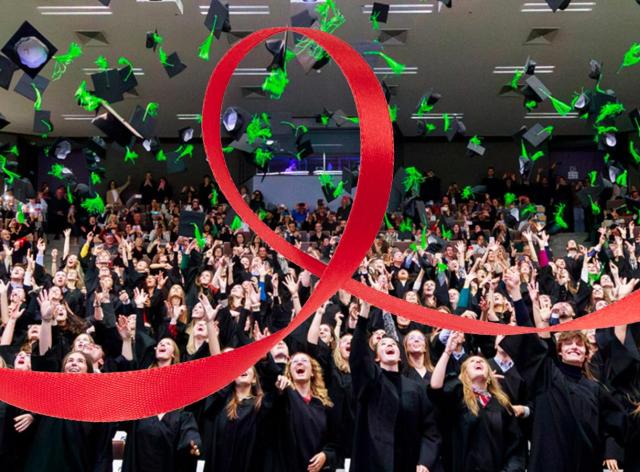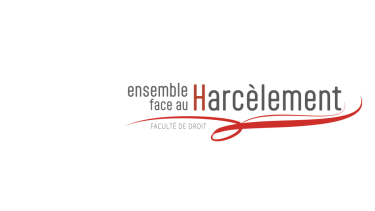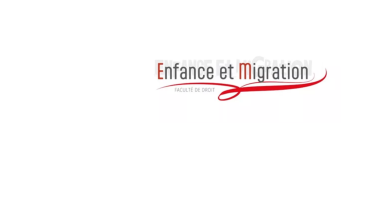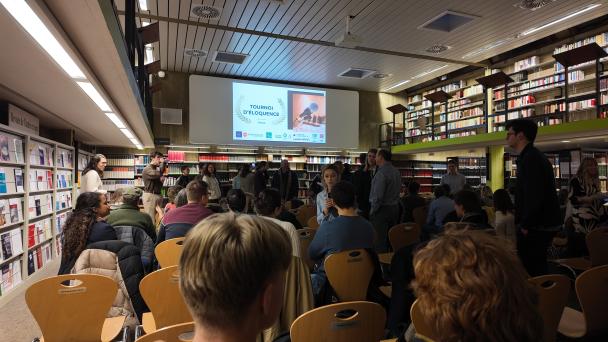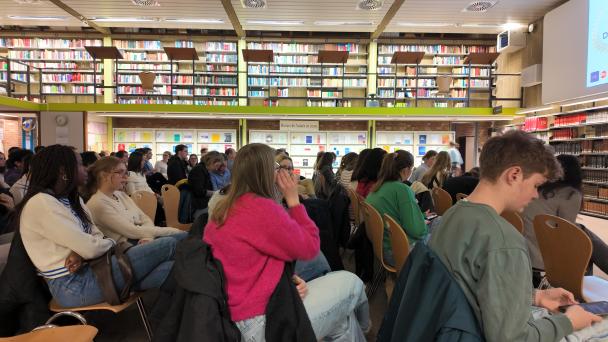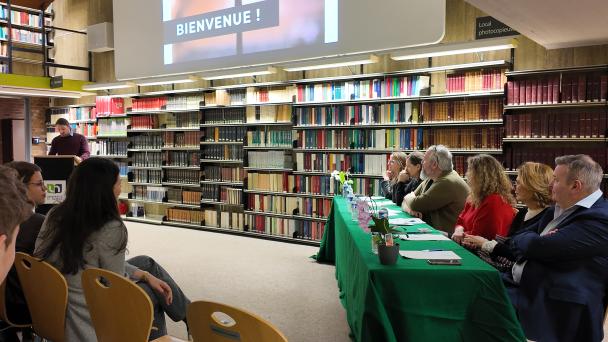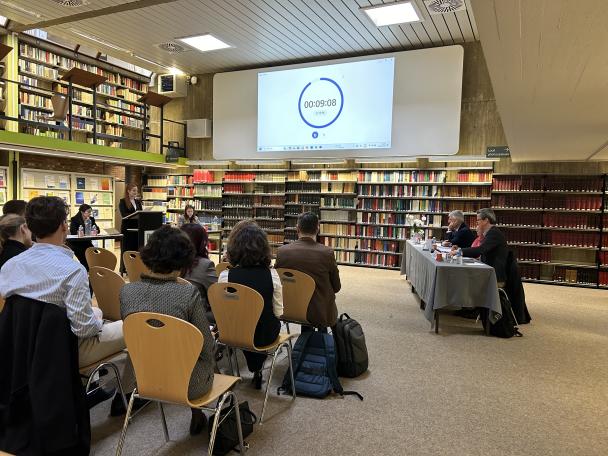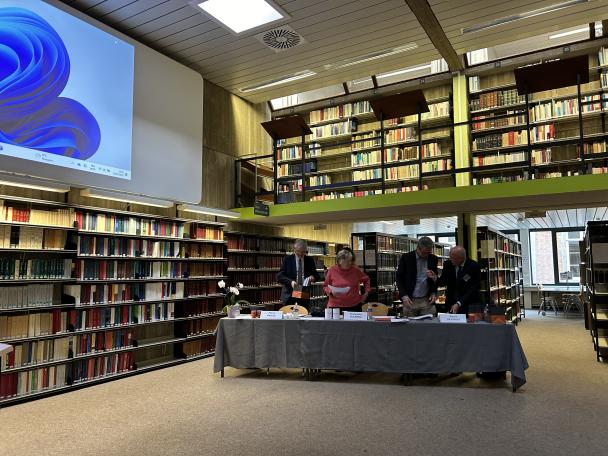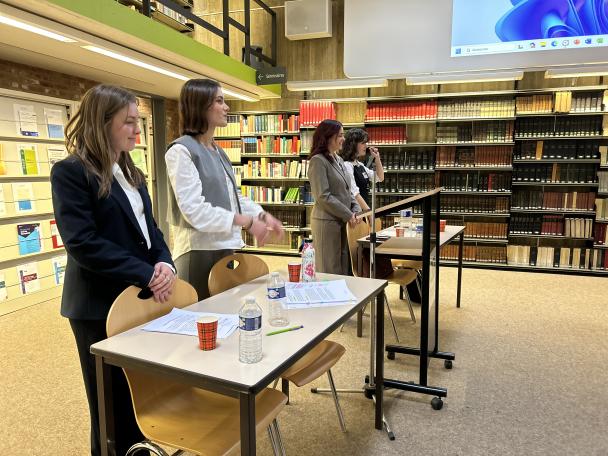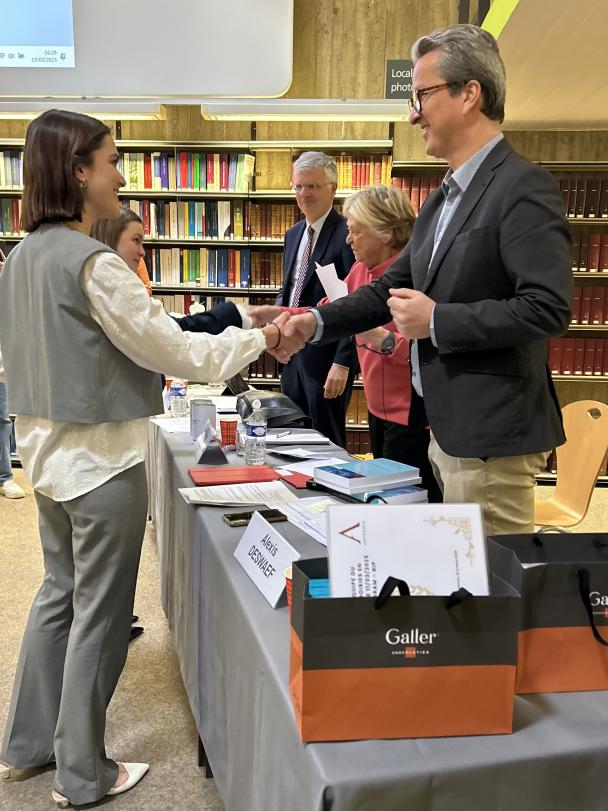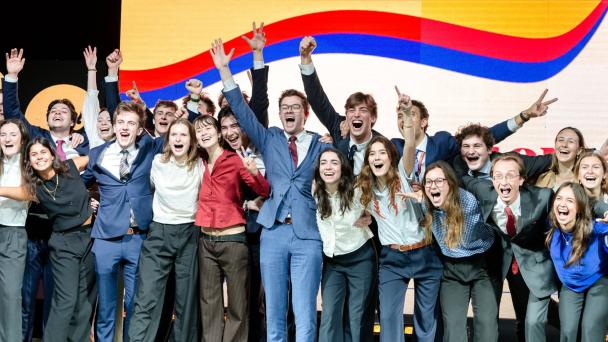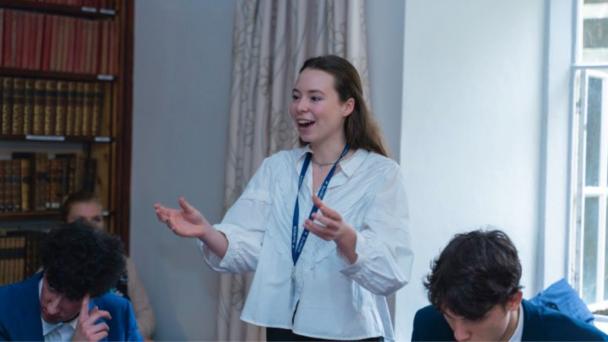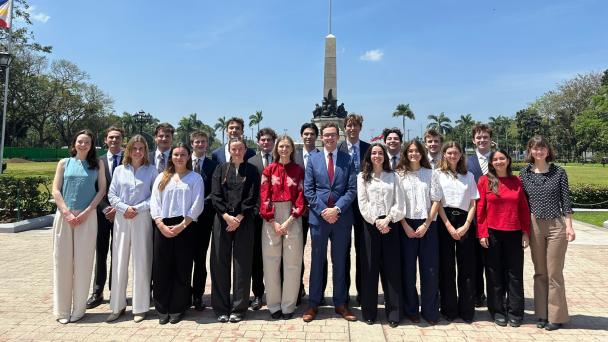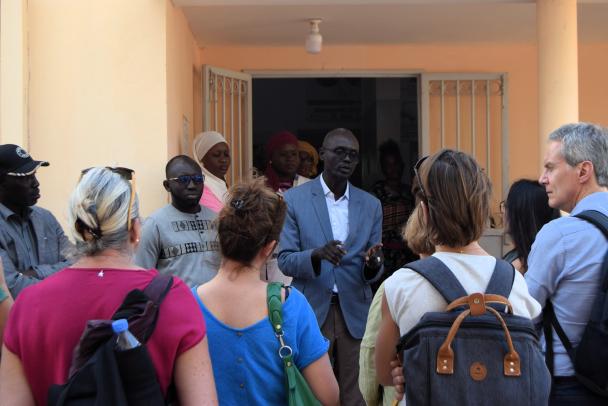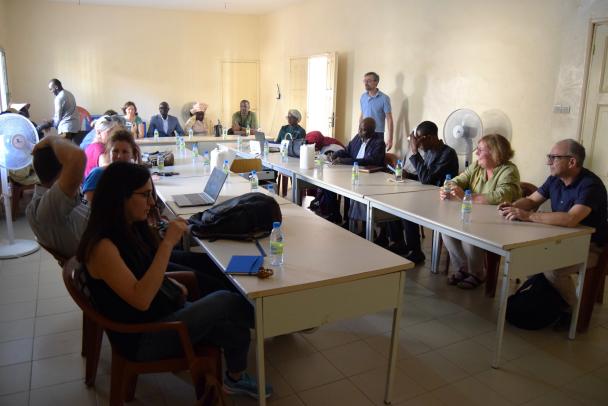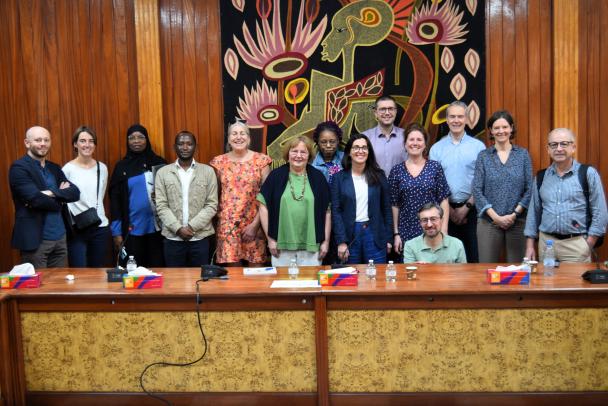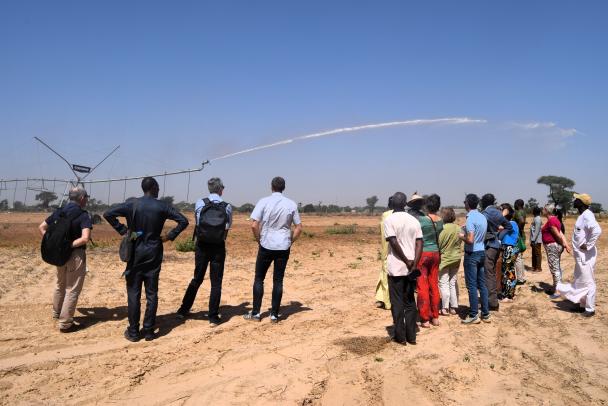Since 2022, the Faculty of Law has chosen a theme for the year that unites the entire Faculty, students and teachers alike, across all blocks and programs. This theme is used in courses, tutorials, assignments, conferences and cultural activities throughout the academic year. A new dynamic that makes the framing of the University of Namur ever more unique.
So, in 2022-2023, we have come together around CHILDHOOD & MIGRATION and in 2023-2024, around HARASSMENT in all its forms.
The 2024-2025 theme: Let's live inclusion!
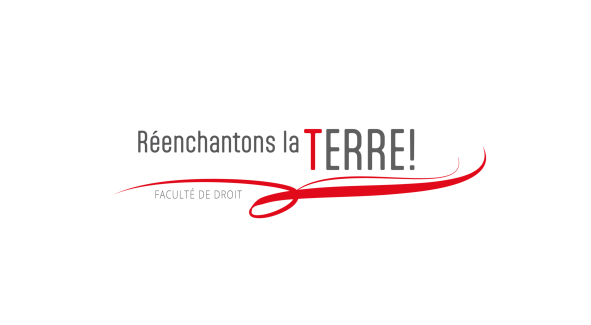
Following consultation with students, we have chosen this idea that everyone has a place in society, regardless of race, gender, social class, generation, ability, romantic and/or sexual preferences,...
We will therefore be raising awareness of racism, LGBTQIA+, the less able, the elderly or very young, grossophobia, ...
Objectives
- We'll get together (staggered schedule and daytime schedule; BAC 1, BAC 2 and BAC 3, research centers and specialized masters)
- Dive into practice and make courses concrete
- Conscious that law is a (good) tool in the service of values
- Decompartmentalize subjects in a cross-disciplinary approach
- Become a committed jurist
- Enrich our heads and hearts!
Methodology
- Through the various courses, practical work, assignments (methodo and TFC), by concretizing the subject matter taught with issues related to harassment in all its forms;
- As part of the complementary activities offered: meeting legal professionals, plays, films, debates, ...
Activities
- Illustrations and lectures in lectures
- Faculty activities alongside classes (mock trial, eloquence tournament, ...)
- Cultural activities
- Other enriching activities (competition to make awareness-raising video vignettes, ...)
Resources
Find all the resources available as part of the Common thread de droit.
The common thread of previous years
Spotlight
News

Digital start-ups advised by Namur Legal Lab students
Digital start-ups advised by Namur Legal Lab students
For many years now, students at the University of Namur's Master of Specialization in Digital Law have been offering high-quality, free legal support to young start-ups active in the digital sector.

The creation of a site for selling goods online or a social network, the development of AI-based IT tools, the provision of a self-help platform between students or an application for exchanging information between a healthcare professional and his or her patient, and so on. What these different types of project have in common, of course, is that they are innovative and exciting, but they also raise legal issues that are not so obvious to the project leaders and yet so exciting to our students, who are only too happy to lend their support!
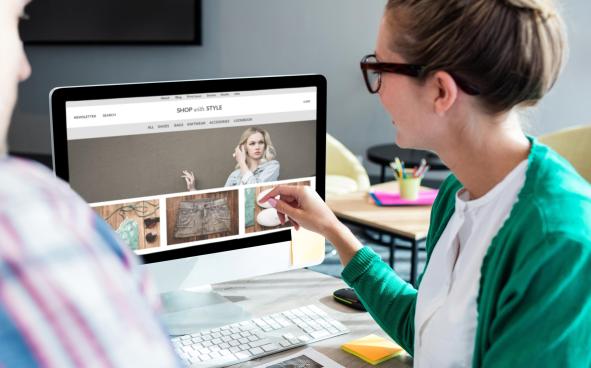
E-commerce law, intellectual property law, AI and data regulations, etc., are all areas in which our students can offer their help.
By seeking advice from Namur Legal Lab students, start-ups have the opportunity to protect themselves against the violation of certain regulations applicable to their business sector and integrate various legal approaches and constraints into their business model as early as possible.

For Master's students, the Namur Legal Lab represents real educational and professional added value. They find themselves on the front line with players in economic life whom they will have to advise and guide to help them bring their project to fruition. They will have to make the link between the theory they have acquired during their training and the realities on the ground. In other words... to be able to take the plunge... but not without a safety net, since they will still be supervised by the Master's teaching staff.
To be in with a chance of being selected, interested start-ups must submit their applications as soon as possible, and before September 15, 2025, via the online form.
Contact: camille.bourguignon@unamur.be
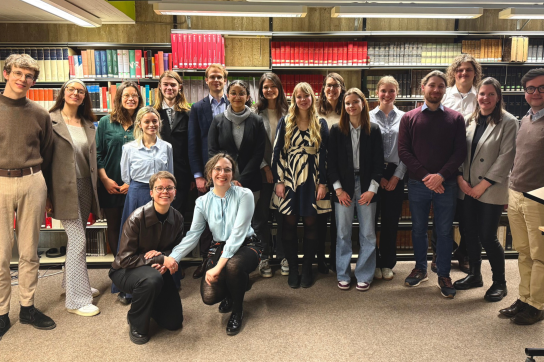
The Faculty of Law mobilizes around inclusion
The Faculty of Law mobilizes around inclusion
Since 2022, the Faculty of Law at the University of Namur has been inviting students and teachers to come together around a common theme every year. Entitled "Fil Rouge", this project is expressed through courses, practical work and various educational, cultural and civic initiatives. It instills an original dynamic by encouraging the faculty community to tackle societal issues in a cross-disciplinary, concrete and committed way.
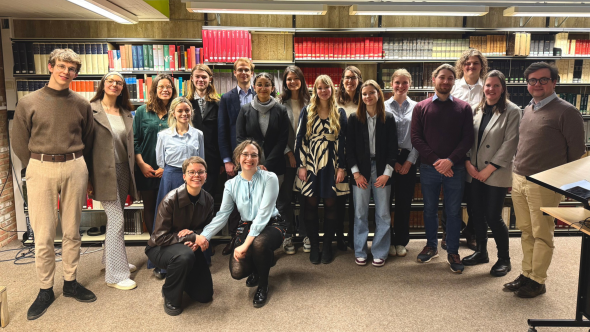
After tackling childhood and migration in 2022-2023, then harassment in 2023-2024, this year the Faculty devoted its Fil Rouge to a fundamental topic: inclusion. With the slogan "Let's live inclusion!", the 2024-2025 edition raised everyone's awareness of the importance of a society where everyone finds their place, whatever their origin, gender, social class, age, physical or mental abilities, sexual orientation...
Look back at some of the highlights of this second quadrimester.
Our Doctor Honoris Causa Josef Schovanec returns to UNamur
Philosopher, writer and campaigner for the dignity of people with autism, Josef Schovanec spoke on February 18 as part of Elise Degrave's "Sources et principes du droit" course. In front of Bac 1 students, he gave an exceptional lecture on discrimination and the means to remedy it.
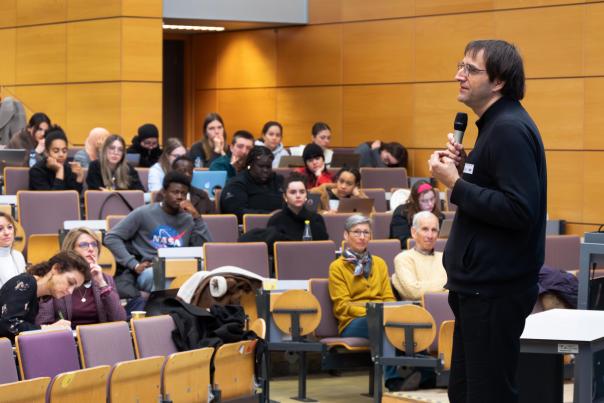
Eloquence tournament
On February 19, 2025, the final of the eloquence tournament took place, featuring powerful messages and inspiring performances. The tournament saw eight brilliant finalists compete, starting with Stephen Hawking's quote, "Disability cannot be a handicap".
- First prize and the audience prize were won by Aude Cavillot (student in BLOC 1)
- Second prize was won by Soraya El Kajjal (student in BLOC 3)
- Third prize was won by Natéo Carnot (student in BLOC 1)
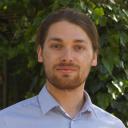
We are delighted with this year's eloquence tournament, which attracted a large number of candidates. With its final on the theme of disability, it fits in with the Faculty's Fil Rouge, dedicated this year to inclusion. In addition, the eloquence tournament was reinvented: opening the competition to first-year students, introducing personalized coaching for finalists by faculty assistants, seeking new sponsors, and collaborating with ELSA and the Cercle de droit... All these elements made the evening a great success.
Racist rhetoric
On February 27, Benjamin Gisaro, a Belgian performer of Congolese origin, accompanied by Marie Dusingize, a doctoral student in socio-anthropology and specialist in Afro-descendant identities at ULiège, met with students in the Logic and Argumentation course taught by Thibault de Meyer. After enlightening them on the mechanisms of trivialized racism, anchoring the presentation with topical elements, and inviting them to write about their experiences, two of the actors from her show "Évidemment, c'est fâcheux" presented extracts from it, to then debate with the audience racist discourses and their deconstruction.
.European Moot Court Competition
From March 10 to 14, the Faculty hosted an academic event of international stature: the European Moot Court Competition. Supervised by Jean-Marc Van Gyseghem, lecturer at UNamur and deputy director of the Centre de recherches Information, Droit et Société (CRIDS), this initiative was organized as part of the Erasmus+ Blended Intensive Programme (BIP) and brought together five European universities: the Catholic University of Lyon, Poitiers, Aristotle of Thessalonica (Athens) and ELTE Eötvös (Budapest), in addition to UNamur.
The aim of such a project was to immerse students in an immersive and formative experience, through a French-language pleading competition, articulated around human rights and preceded by an online preparatory course lasting around 25 hours.
Video competition
In close collaboration with the City of Namur, the Faculty organized a competition for video creations to raise awareness of inclusion and non-discrimination on campus, in town and everywhere... Open to two categories of artistic creations, from students or staff members, it highlighted the talents of four winners.
In the student category:
- First prize: The digital divide, by Maya Bernard, Jade Botton and Lou de Potter
- Second prize: Blinded by digital advances, by Léna Lampasona, Chloé Petron, Achille Dewez and Romain Gilsoul
- Third prize and audience award: BREF, le numérique c'est génial... ou pas, by Louise Defrang and Violette Davreux
In the staff member category:
- Sarah Larielle, assistant and PhD student
Soirée festive du Fil
To celebrate all the Sons during the year in style, and for the 3rd year running, the Faculty organized a charity improv match, pitting the Devil's Advocates team against the ImproNam team. The evening was attended by over 600 people, and raised over €3,090 for the Ihsane Jarfi Foundation, which aims to combat all forms of discrimination and violence, particularly those motivated by homophobia.
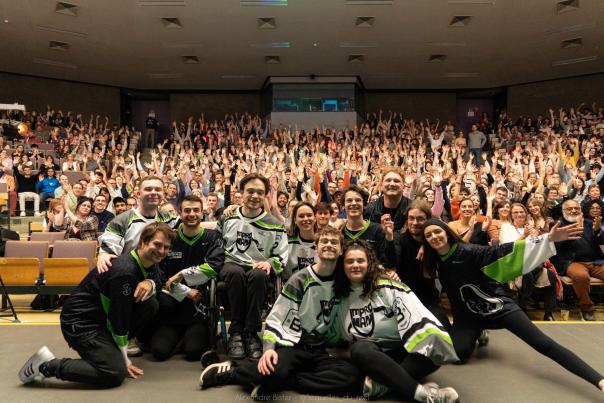
And next year's Fil Rouge?
The thread that will weave its way through the Faculty of Law in 2025-2026 will be dedicated to the theme of "Reenchanting the Earth!". Many more motivating activities in prospect!
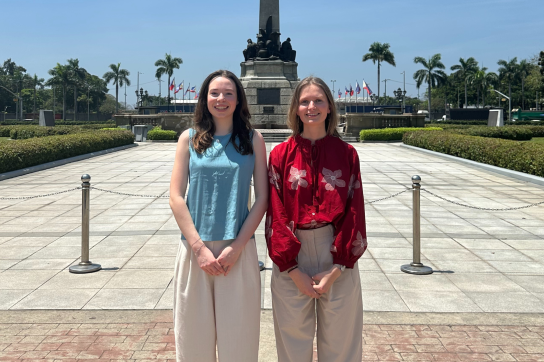
Two students from the Faculty of Law become world diplomacy champions
Two students from the Faculty of Law become world diplomacy champions
Law students at UNamur, Marilyn Emmerechts and Delphine Blomme are part of the MUN Society Belgium (MSB), an organization that offers debate simulations in UN committees. In March, their team travelled to Manila, Philippines, to compete in the World Student Diplomacy Championships, organized by Harvard University. For five days, they debated alongside over 1,000 students. Interview.
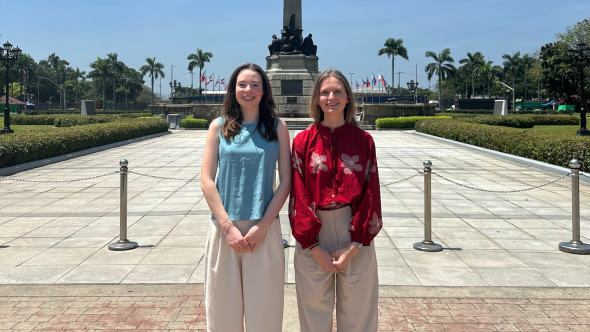
How would you define diplomacy?
Marilyn : Diplomacy is a way for state representatives, like ambassadors, to exchange and defend their country's interests on the international stage. The idea is always to seek compromise and cooperation between states. Each country has its own history, its own values, its own politics, but the aim is to put our differences aside to find common solutions.
What drew you to this art form?
Delphine: I've always been interested in international relations. It's a field I'm passionate about and I really wanted to do something concrete with it. Participating in this type of experience is an incredible opportunity.
Marilyn : What I love about my studies is all the theoretical part of law, but I was missing a more practical aspect. Diplomacy precisely allows me to develop speaking, debating and negotiating skills: skills that will be essential for me later on, particularly when working in law.
What qualities do you consider particularly important in diplomacy?
Marilyn : Listening is really essential. You have to be able to understand the reasoning of others, especially in a context where everyone comes from a different country, with their own way of approaching problems. The aim is to arrive at a solution that can benefit everyone, and to do that, you have to know how to listen, follow the arguments of others and build a common response.
Delphine: You also need to be able to put yourself in the other person's shoes, to understand their point of view. And then, self-confidence is important, especially when you're speaking or debating. You also need to know how to adapt, in particular by listening to what others have to say, so you can adjust your own speech accordingly.
Marylin: During these conferences, each party arrives with its own issues. The challenge is to succeed in integrating all these perspectives into a common solution, and that really comes down to listening and adaptability.
How does this experience complement your legal training?
Marilyn : I learn a lot from her, especially in speaking and negotiating, which are key skills for practicing as a judge or lawyer. Knowing how to defend someone requires more than theory. I'm also doing further training in political science and have a course in the history of international relations. The lectures allow me to apply what I'm learning, but also to better understand how things work in practice.
Delphine: It also helps us make the connection with certain courses, like European or international law. It's a good way to start familiarizing ourselves with these subjects, while approaching them in a more concrete way.
This year, which country did you represent and on what subject?
Delphine: This year, the competition was held in Manila, in the Philippines, for a week. We received the theme a few weeks before the competition, which enabled us to prepare well, to understand the position of the country we were representing, so that we could best defend our point of view during the debates. Personally, I represented Egypt in the Social, Cultural and Humanitarian Committee (SOCHUM). The topic was access to universal healthcare.
Marilyn: For my part, I represented Colombia, in the social development committee. The theme was global poverty reduction. It's quite a broad topic, with a multidimensional approach, both cultural, social and economic, which made the research and negotiation work particularly interesting.
Marilyn: For my part, I represented Colombia, on the social development commission.What do you like best about this experience?
Marilyn: What I really like is all the personal development it's given me. I've gained a huge amount of self-confidence, I've got to know my strengths and weaknesses better. It's also really motivating to see how far you've come. I think that, in a few years' time, that's what I'll remember most of all: how much this experience has made me grow.
Delphine: MSB pushes us as much academically as personally. You develop as a person, gain confidence and become more efficient. All this with a group of friends who are living the same adventure as we are. You also get to meet people from all over the world, which really opens up your mind.
It was Belgium's 12th victory and fifth in a row. How do you explain this success?
Marilyn: This year was also MSB's 20th anniversary. I think our real strength is diversity. Within MSB, there are students from all over Belgium, as much from Wallonia as from Flanders and from a wide variety of backgrounds: law, engineering, medicine, political science... And then above all, there's an incredible friendship between us.
Delphine: We're all highly motivated and we're living this adventure to the full, together. During the conference, we rely heavily on our ability to listen and adapt. We're not here to impose our ideas, but to build collective solutions with the other delegations.
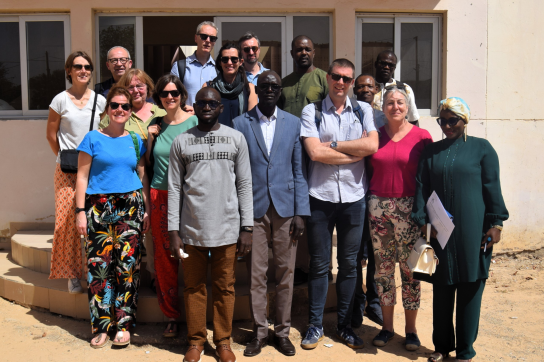
An exploratory mission to forge ties with Senegal
An exploratory mission to forge ties with Senegal
A delegation from the Université de Namur took part in an exploratory mission to the Université Cheikh Anta Diop (UCAD) in Dakar, Senegal. The aim: to discover the research carried out in the field, meet UCAD researchers and initiate future collaborations between the two institutions.
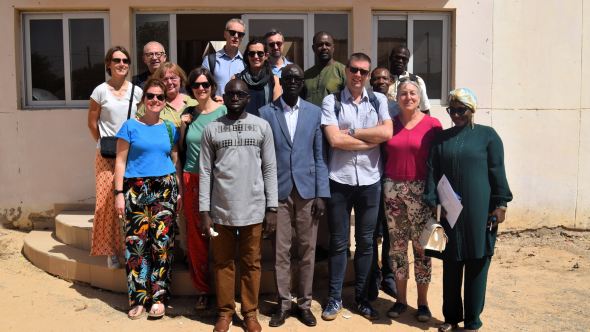
Ten members of UNamur's academic and scientific staff, accompanied by the International Relations Department and the NGO FUCID, the University Forum for International Development Cooperation, took part in an exploratory mission co-organized with UCAD. The mission was part of the university's drive to strengthen partnerships with the South, by promoting exchanges, raising researchers' awareness of the issues facing the global South, and helping new projects to emerge.
For a week, several activities were organized to enable members of the delegation to discover the Senegalese university: a visit to UCAD and discovery of its issues, exchanges around the concept of "One Health", meetings between researchers, a field visit and a closing moment in the presence of institutional partners.
Catherine Linard, professor at the Faculty of Sciences, was part of the Namur delegation "Going on site and exchanging with our Senegalese colleagues is very important. It allows us to discover the wealth of their research, in fields often directly connected to realities on the ground," she explains.
Since 2015, Catherine Linard has been collaborating with UCAD, notably as part of a research and development project supported by ARES. "From this initial collaboration a number of dynamics were born. Several Senegalese PhD students have come to Belgium to pursue their research. And conversely, one of my Belgian PhD students, Camille Morlighem, who is working on the creation of malaria risk maps in Senegal, has been able to benefit from mobility grants for research stays at UCAD. We've also established teaching exchanges: I went to Dakar to give a week's training to PhD students in geography, and a fellow health geographer, Aminata Niang Diène, comes to Belgium every year to speak in one of my master's courses," continues the professor.
The participants
The delegation brought together profiles from several UNamur faculties and departments:
- Francesca Cecchet, Faculty of Science, President of the NISM (Namur Institute of Structured Matter) Research Institute and member of the (NaRILIS Namur Research Institute for Life Sciences)
- Laurent Houssiau, Faculty of Science and member of the NISM (Namur Institute of Structured Matter) Research Institute
- Charles Nicaise, Faculty of Medicine and President of the NaRILIS Research Institute (Namur Research Institute for Life Sciences)
- Denis Saint-Amand, Faculty of Philosophy and Letters and member of the NaLTT Research Institute (Namur Institute of Language, Text and Transmediality)
- Laurent Ravez, Faculties of Medicine and Science and member of the NaRILiS (Namur Research Institute for Life Sciences) and EsPhiN (Espace Philosophique de Namur)
- Anne Vermeyen, member of the Cellule bien-être animal
- Flora Musuamba, Faculty of Medicine and member of the NaRILIS Research Institute (Namur Research Institute for Life Sciences)
- Florence Georges, Faculty of Law and member of the NaDI (Namur Digital Institute)
- Nathanaël Laurent, Faculty of Science and member of the EsPhiN (Espace Philosophique de Namur)
- Catherine Linard, Faculty of Science and member of the NaRILIS (Namur Research Institute for Life Sciences) and ILEE (Institute of Life-Earth-Environment)
- Rita Rixen, Director of FUCID, the University Forum for International Development Cooperation
- Amélie Schnock, member of the International Relations Department
The University of Namur on the international stage
Committed to international cooperation and development, the University of Namur maintains numerous collaborations with several institutions around the world. These collaborations take the form of research projects, teaching or training assignments, or student training as part of UNamur's teaching offer or as part of short-term internships, particularly research internships.
The University of Namur is committed to international cooperation and development.
Digital start-ups advised by Namur Legal Lab students
Digital start-ups advised by Namur Legal Lab students
For many years now, students at the University of Namur's Master of Specialization in Digital Law have been offering high-quality, free legal support to young start-ups active in the digital sector.

The creation of a site for selling goods online or a social network, the development of AI-based IT tools, the provision of a self-help platform between students or an application for exchanging information between a healthcare professional and his or her patient, and so on. What these different types of project have in common, of course, is that they are innovative and exciting, but they also raise legal issues that are not so obvious to the project leaders and yet so exciting to our students, who are only too happy to lend their support!

E-commerce law, intellectual property law, AI and data regulations, etc., are all areas in which our students can offer their help.
By seeking advice from Namur Legal Lab students, start-ups have the opportunity to protect themselves against the violation of certain regulations applicable to their business sector and integrate various legal approaches and constraints into their business model as early as possible.

For Master's students, the Namur Legal Lab represents real educational and professional added value. They find themselves on the front line with players in economic life whom they will have to advise and guide to help them bring their project to fruition. They will have to make the link between the theory they have acquired during their training and the realities on the ground. In other words... to be able to take the plunge... but not without a safety net, since they will still be supervised by the Master's teaching staff.
To be in with a chance of being selected, interested start-ups must submit their applications as soon as possible, and before September 15, 2025, via the online form.
Contact: camille.bourguignon@unamur.be

The Faculty of Law mobilizes around inclusion
The Faculty of Law mobilizes around inclusion
Since 2022, the Faculty of Law at the University of Namur has been inviting students and teachers to come together around a common theme every year. Entitled "Fil Rouge", this project is expressed through courses, practical work and various educational, cultural and civic initiatives. It instills an original dynamic by encouraging the faculty community to tackle societal issues in a cross-disciplinary, concrete and committed way.

After tackling childhood and migration in 2022-2023, then harassment in 2023-2024, this year the Faculty devoted its Fil Rouge to a fundamental topic: inclusion. With the slogan "Let's live inclusion!", the 2024-2025 edition raised everyone's awareness of the importance of a society where everyone finds their place, whatever their origin, gender, social class, age, physical or mental abilities, sexual orientation...
Look back at some of the highlights of this second quadrimester.
Our Doctor Honoris Causa Josef Schovanec returns to UNamur
Philosopher, writer and campaigner for the dignity of people with autism, Josef Schovanec spoke on February 18 as part of Elise Degrave's "Sources et principes du droit" course. In front of Bac 1 students, he gave an exceptional lecture on discrimination and the means to remedy it.

Eloquence tournament
On February 19, 2025, the final of the eloquence tournament took place, featuring powerful messages and inspiring performances. The tournament saw eight brilliant finalists compete, starting with Stephen Hawking's quote, "Disability cannot be a handicap".
- First prize and the audience prize were won by Aude Cavillot (student in BLOC 1)
- Second prize was won by Soraya El Kajjal (student in BLOC 3)
- Third prize was won by Natéo Carnot (student in BLOC 1)

We are delighted with this year's eloquence tournament, which attracted a large number of candidates. With its final on the theme of disability, it fits in with the Faculty's Fil Rouge, dedicated this year to inclusion. In addition, the eloquence tournament was reinvented: opening the competition to first-year students, introducing personalized coaching for finalists by faculty assistants, seeking new sponsors, and collaborating with ELSA and the Cercle de droit... All these elements made the evening a great success.
Racist rhetoric
On February 27, Benjamin Gisaro, a Belgian performer of Congolese origin, accompanied by Marie Dusingize, a doctoral student in socio-anthropology and specialist in Afro-descendant identities at ULiège, met with students in the Logic and Argumentation course taught by Thibault de Meyer. After enlightening them on the mechanisms of trivialized racism, anchoring the presentation with topical elements, and inviting them to write about their experiences, two of the actors from her show "Évidemment, c'est fâcheux" presented extracts from it, to then debate with the audience racist discourses and their deconstruction.
.European Moot Court Competition
From March 10 to 14, the Faculty hosted an academic event of international stature: the European Moot Court Competition. Supervised by Jean-Marc Van Gyseghem, lecturer at UNamur and deputy director of the Centre de recherches Information, Droit et Société (CRIDS), this initiative was organized as part of the Erasmus+ Blended Intensive Programme (BIP) and brought together five European universities: the Catholic University of Lyon, Poitiers, Aristotle of Thessalonica (Athens) and ELTE Eötvös (Budapest), in addition to UNamur.
The aim of such a project was to immerse students in an immersive and formative experience, through a French-language pleading competition, articulated around human rights and preceded by an online preparatory course lasting around 25 hours.
Video competition
In close collaboration with the City of Namur, the Faculty organized a competition for video creations to raise awareness of inclusion and non-discrimination on campus, in town and everywhere... Open to two categories of artistic creations, from students or staff members, it highlighted the talents of four winners.
In the student category:
- First prize: The digital divide, by Maya Bernard, Jade Botton and Lou de Potter
- Second prize: Blinded by digital advances, by Léna Lampasona, Chloé Petron, Achille Dewez and Romain Gilsoul
- Third prize and audience award: BREF, le numérique c'est génial... ou pas, by Louise Defrang and Violette Davreux
In the staff member category:
- Sarah Larielle, assistant and PhD student
Soirée festive du Fil
To celebrate all the Sons during the year in style, and for the 3rd year running, the Faculty organized a charity improv match, pitting the Devil's Advocates team against the ImproNam team. The evening was attended by over 600 people, and raised over €3,090 for the Ihsane Jarfi Foundation, which aims to combat all forms of discrimination and violence, particularly those motivated by homophobia.

And next year's Fil Rouge?
The thread that will weave its way through the Faculty of Law in 2025-2026 will be dedicated to the theme of "Reenchanting the Earth!". Many more motivating activities in prospect!

Two students from the Faculty of Law become world diplomacy champions
Two students from the Faculty of Law become world diplomacy champions
Law students at UNamur, Marilyn Emmerechts and Delphine Blomme are part of the MUN Society Belgium (MSB), an organization that offers debate simulations in UN committees. In March, their team travelled to Manila, Philippines, to compete in the World Student Diplomacy Championships, organized by Harvard University. For five days, they debated alongside over 1,000 students. Interview.

How would you define diplomacy?
Marilyn : Diplomacy is a way for state representatives, like ambassadors, to exchange and defend their country's interests on the international stage. The idea is always to seek compromise and cooperation between states. Each country has its own history, its own values, its own politics, but the aim is to put our differences aside to find common solutions.
What drew you to this art form?
Delphine: I've always been interested in international relations. It's a field I'm passionate about and I really wanted to do something concrete with it. Participating in this type of experience is an incredible opportunity.
Marilyn : What I love about my studies is all the theoretical part of law, but I was missing a more practical aspect. Diplomacy precisely allows me to develop speaking, debating and negotiating skills: skills that will be essential for me later on, particularly when working in law.
What qualities do you consider particularly important in diplomacy?
Marilyn : Listening is really essential. You have to be able to understand the reasoning of others, especially in a context where everyone comes from a different country, with their own way of approaching problems. The aim is to arrive at a solution that can benefit everyone, and to do that, you have to know how to listen, follow the arguments of others and build a common response.
Delphine: You also need to be able to put yourself in the other person's shoes, to understand their point of view. And then, self-confidence is important, especially when you're speaking or debating. You also need to know how to adapt, in particular by listening to what others have to say, so you can adjust your own speech accordingly.
Marylin: During these conferences, each party arrives with its own issues. The challenge is to succeed in integrating all these perspectives into a common solution, and that really comes down to listening and adaptability.
How does this experience complement your legal training?
Marilyn : I learn a lot from her, especially in speaking and negotiating, which are key skills for practicing as a judge or lawyer. Knowing how to defend someone requires more than theory. I'm also doing further training in political science and have a course in the history of international relations. The lectures allow me to apply what I'm learning, but also to better understand how things work in practice.
Delphine: It also helps us make the connection with certain courses, like European or international law. It's a good way to start familiarizing ourselves with these subjects, while approaching them in a more concrete way.
This year, which country did you represent and on what subject?
Delphine: This year, the competition was held in Manila, in the Philippines, for a week. We received the theme a few weeks before the competition, which enabled us to prepare well, to understand the position of the country we were representing, so that we could best defend our point of view during the debates. Personally, I represented Egypt in the Social, Cultural and Humanitarian Committee (SOCHUM). The topic was access to universal healthcare.
Marilyn: For my part, I represented Colombia, in the social development committee. The theme was global poverty reduction. It's quite a broad topic, with a multidimensional approach, both cultural, social and economic, which made the research and negotiation work particularly interesting.
Marilyn: For my part, I represented Colombia, on the social development commission.What do you like best about this experience?
Marilyn: What I really like is all the personal development it's given me. I've gained a huge amount of self-confidence, I've got to know my strengths and weaknesses better. It's also really motivating to see how far you've come. I think that, in a few years' time, that's what I'll remember most of all: how much this experience has made me grow.
Delphine: MSB pushes us as much academically as personally. You develop as a person, gain confidence and become more efficient. All this with a group of friends who are living the same adventure as we are. You also get to meet people from all over the world, which really opens up your mind.
It was Belgium's 12th victory and fifth in a row. How do you explain this success?
Marilyn: This year was also MSB's 20th anniversary. I think our real strength is diversity. Within MSB, there are students from all over Belgium, as much from Wallonia as from Flanders and from a wide variety of backgrounds: law, engineering, medicine, political science... And then above all, there's an incredible friendship between us.
Delphine: We're all highly motivated and we're living this adventure to the full, together. During the conference, we rely heavily on our ability to listen and adapt. We're not here to impose our ideas, but to build collective solutions with the other delegations.

An exploratory mission to forge ties with Senegal
An exploratory mission to forge ties with Senegal
A delegation from the Université de Namur took part in an exploratory mission to the Université Cheikh Anta Diop (UCAD) in Dakar, Senegal. The aim: to discover the research carried out in the field, meet UCAD researchers and initiate future collaborations between the two institutions.

Ten members of UNamur's academic and scientific staff, accompanied by the International Relations Department and the NGO FUCID, the University Forum for International Development Cooperation, took part in an exploratory mission co-organized with UCAD. The mission was part of the university's drive to strengthen partnerships with the South, by promoting exchanges, raising researchers' awareness of the issues facing the global South, and helping new projects to emerge.
For a week, several activities were organized to enable members of the delegation to discover the Senegalese university: a visit to UCAD and discovery of its issues, exchanges around the concept of "One Health", meetings between researchers, a field visit and a closing moment in the presence of institutional partners.
Catherine Linard, professor at the Faculty of Sciences, was part of the Namur delegation "Going on site and exchanging with our Senegalese colleagues is very important. It allows us to discover the wealth of their research, in fields often directly connected to realities on the ground," she explains.
Since 2015, Catherine Linard has been collaborating with UCAD, notably as part of a research and development project supported by ARES. "From this initial collaboration a number of dynamics were born. Several Senegalese PhD students have come to Belgium to pursue their research. And conversely, one of my Belgian PhD students, Camille Morlighem, who is working on the creation of malaria risk maps in Senegal, has been able to benefit from mobility grants for research stays at UCAD. We've also established teaching exchanges: I went to Dakar to give a week's training to PhD students in geography, and a fellow health geographer, Aminata Niang Diène, comes to Belgium every year to speak in one of my master's courses," continues the professor.
The participants
The delegation brought together profiles from several UNamur faculties and departments:
- Francesca Cecchet, Faculty of Science, President of the NISM (Namur Institute of Structured Matter) Research Institute and member of the (NaRILIS Namur Research Institute for Life Sciences)
- Laurent Houssiau, Faculty of Science and member of the NISM (Namur Institute of Structured Matter) Research Institute
- Charles Nicaise, Faculty of Medicine and President of the NaRILIS Research Institute (Namur Research Institute for Life Sciences)
- Denis Saint-Amand, Faculty of Philosophy and Letters and member of the NaLTT Research Institute (Namur Institute of Language, Text and Transmediality)
- Laurent Ravez, Faculties of Medicine and Science and member of the NaRILiS (Namur Research Institute for Life Sciences) and EsPhiN (Espace Philosophique de Namur)
- Anne Vermeyen, member of the Cellule bien-être animal
- Flora Musuamba, Faculty of Medicine and member of the NaRILIS Research Institute (Namur Research Institute for Life Sciences)
- Florence Georges, Faculty of Law and member of the NaDI (Namur Digital Institute)
- Nathanaël Laurent, Faculty of Science and member of the EsPhiN (Espace Philosophique de Namur)
- Catherine Linard, Faculty of Science and member of the NaRILIS (Namur Research Institute for Life Sciences) and ILEE (Institute of Life-Earth-Environment)
- Rita Rixen, Director of FUCID, the University Forum for International Development Cooperation
- Amélie Schnock, member of the International Relations Department
The University of Namur on the international stage
Committed to international cooperation and development, the University of Namur maintains numerous collaborations with several institutions around the world. These collaborations take the form of research projects, teaching or training assignments, or student training as part of UNamur's teaching offer or as part of short-term internships, particularly research internships.
The University of Namur is committed to international cooperation and development.

